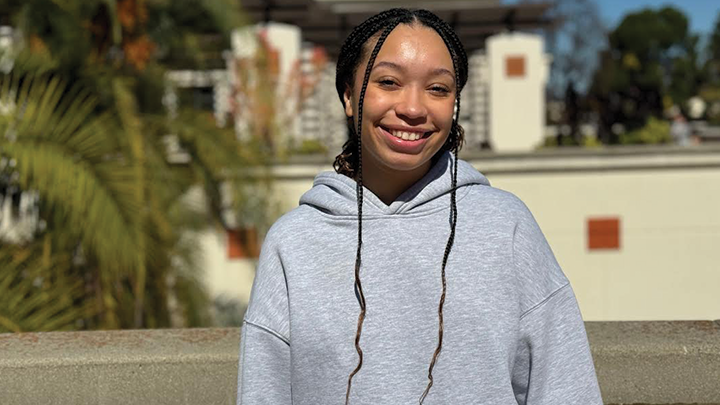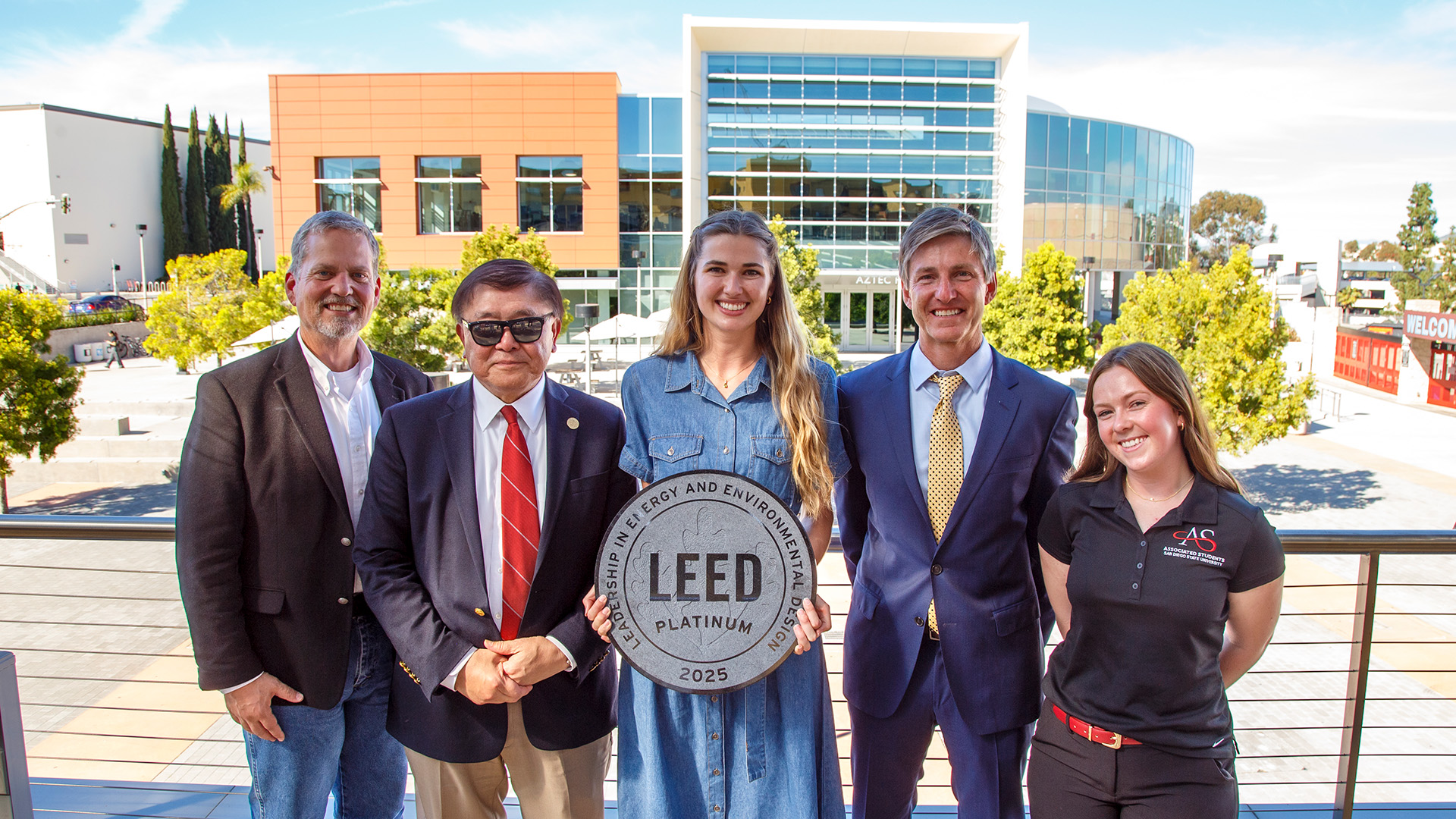For Savanna Harris, Black History is not just confined to 28 days in February. She breathes it 365 days a year — and this year, 366 days.
Harris, a third-year Africana studies and social sciences major from Sacramento, grew up with a passion for African American history from listening to her paternal grandfather and great-grandfather regale the family with stories of their heritage.
But it was a DNA test her father took, which revealed that her family was related to Jordan Bankston Noble, a famous Black soldier during the War of 1812, that ignited a full-on thirst to learn more about her roots and the African diaspora and to teach it to the next generation of high school learners.
Harris, an active member of the Black Resource Center, will get a significant boost in her quest this summer when she travels to South Africa as part of the Mundt Peace Scholarship. She is among eight San Diego State University students selected for the eight-week program that provides students with hands-on learning at aid agencies, humanitarian organizations or social entrepreneurships that support peace and security or seek to alleviate social and economic inequalities.
“I am just happy to be able to connect to the diaspora, see what happened in South Africa, learn about the apartheid regime and everything that happened, but I am really excited to bring that knowledge back here and tell people my experience of what is still going on there,” Harris said. “I am really happy to go to Africa in the first place. It’s always been on my bucket list.”
Learning she was a descendant of Noble, a runaway slave who was famously known for his role as a 14-year-old drummer boy for the U.S. Army in the Battle of New Orleans during the War of 1812, made the history Harris had learned about in school and from her father’s side of the family tangible.
“I knew who he was, so knowing I was related to him was something very special,” Harris said. “Not a lot of people know their history, so I was grateful to have that connection.”
Harris has continued that exploration of Black history at SDSU, becoming active at the Black Resource Center during her second year as part of the Henrietta Goodwin Scholars 2.0 program.
Initially, Harris said, she was hesitant to go to the BRC during her first year.
“I’d always walk past it, saying to myself, ‘Maybe today is the day I peek my head in,’” she said. “But in my sophomore year, I was part of Henrietta Goodwin Scholars and our first mentor-mentee meeting took place at the center, and … after that, the BRC felt like it was my home.”
Over the summer, Harris applied to become one of the BRC’s student assistants, and was among 18 undergraduate students selected out of nearly 90 applicants, said Brandon Gamble, the Black Resource Center’s director. Gamble praised Harris’ commitment to the center and to ethnic studies.
“Her quest to teach ethnic studies will be rewarded many times over because she has given so much of her student life and work life to learning and understanding the needs of others via the Africana Studies Department,” Gamble said. “We are excited for all she has done and will continue to do as an SDSU student.”
Working at the BRC also played a role in Harris landing the Mundt Peace Scholarship: She learned about the program from a flyer at the BRC.
“I saw the Mundt flyer and thought, ‘This is perfect, I already need to study abroad for my major, and I want to go to Africa, so why not apply?’” Harris said. “I didn’t think I was going to make it that far, let alone get the scholarship.”
Upon returning from South Africa, Harris said she wants to finish her undergraduate career strong and begin the process of obtaining her teaching certificate at SDSU.
From there, she wants to teach ethnic studies in high school.
“Teaching African American or ethnic studies helps me put an emphasis on African history and teach it to those who might not have the opportunity to learn it until way later in life — or never at all,” Harris said. “To be able to give them that knowledge early in life is really important to me.”




